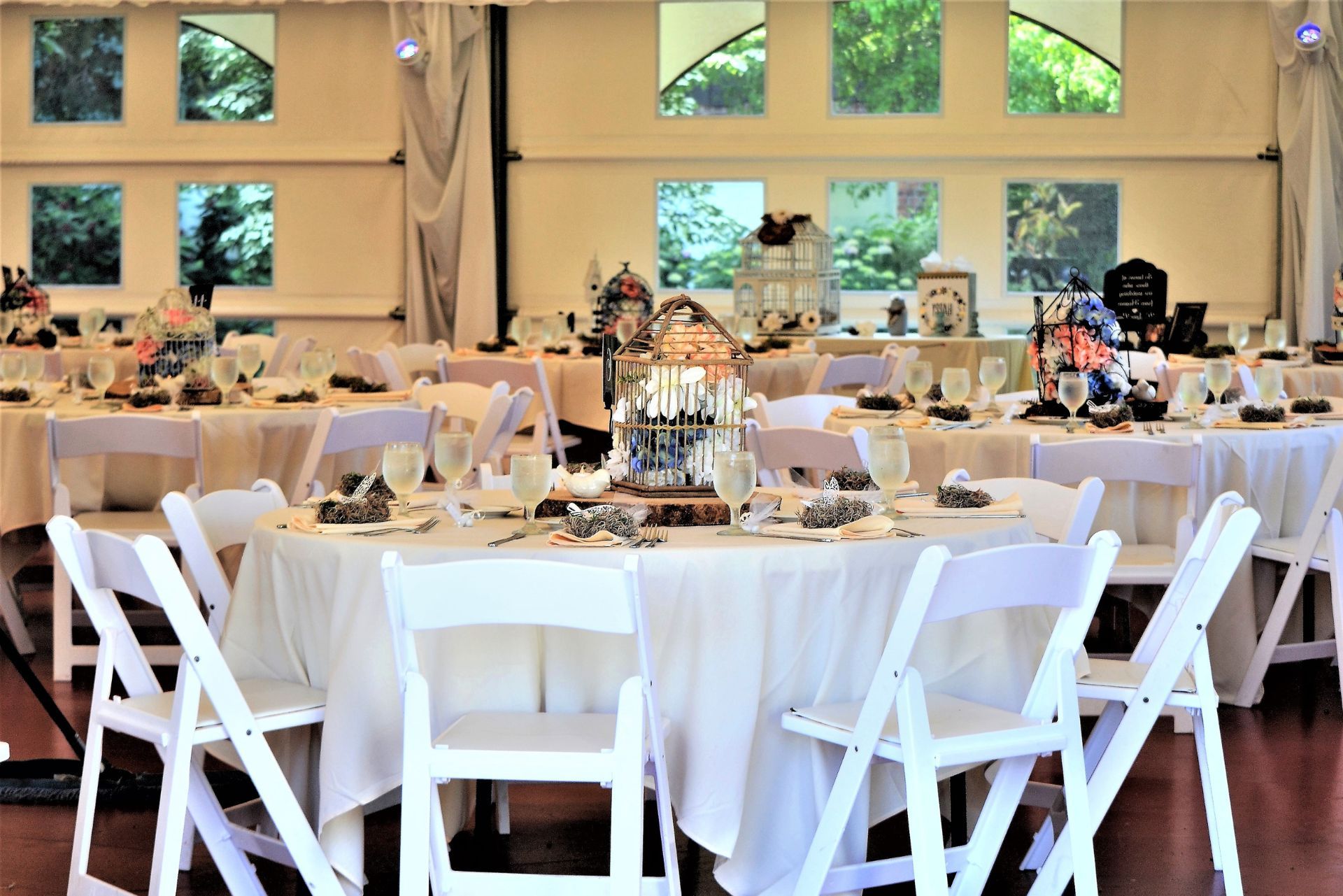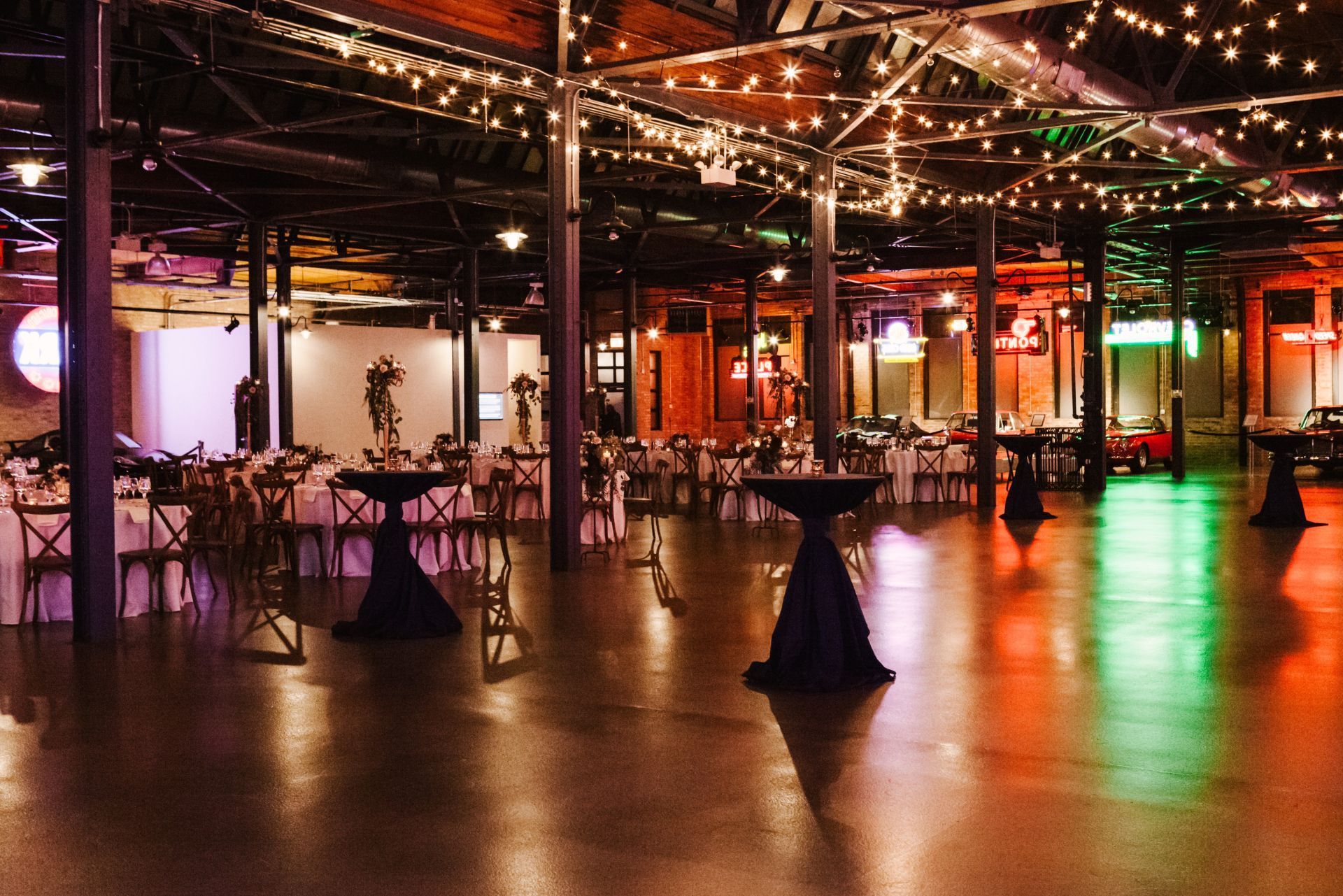Top 3 Recommended Policies

By: Lance Hale
Licensed Commercial Insurance Specialist
425-320-4280
Planning a wedding at a vineyard in Walla Walla, a music festival on Seattle’s waterfront, or a cultural fair in Spokane can be exciting, but it also exposes organizers to legal, financial, and reputational risks. Washington’s weather can shift quickly, liquor laws are strict, and local municipalities often require evidence of coverage before issuing permits. Special event insurance exists to protect event hosts, vendors, and venues from unforeseen losses. The following guide explores how these policies work in the Evergreen State, which regulations apply, and the practical steps every planner should take to keep guests safe and balance sheets intact.
Why Special Event Insurance Matters In Washington
Washington’s event economy has rebounded strongly since pandemic shutdowns. According to the Washington Festivals & Events Association, more than 4,000 permitted public events were held statewide in 2023, drawing an estimated 19 million attendees. Each gathering represents a potential liability exposure. A single slip-and-fall claim at a community fundraiser can exceed $30,000 in medical and legal costs, while property damage to a rented ballroom could easily surpass the average $1,000 security deposit. Without insurance, those bills must be paid out of pocket, jeopardizing personal finances or organizational budgets.
Weather volatility further underscores the need for coverage. Data from the National Centers for Environmental Information shows that Washington experienced 15 days of record rainfall in 2023 alone. Sudden downpours have flooded parking lots, shorted stage equipment, and forced event cancellations. The right insurance policy can reimburse non-refundable vendor deposits, protect rented gear, and cover injuries caused by slippery conditions. In short, special event insurance converts unpredictable hazards into manageable costs.
Key Statistics That Highlight The Risk
The state’s Office of Risk Management reports that general liability claims involving public gatherings average $42,500 per incident. Liquor-related claims are even steeper, with settlements averaging $78,000 when alcohol is served to a visibly intoxicated guest who later causes harm. Meanwhile, research by a leading broker found that 27 percent of ticketed events nationwide faced some form of cancellation or postponement expense in 2022, often due to severe weather or vendor bankruptcy. These numbers illustrate why event insurance is not merely an optional extra but a cornerstone of responsible planning.
Moreover, the financial implications of not having insurance can extend beyond immediate costs. Event organizers may face reputational damage if incidents occur, leading to a loss of trust from attendees and sponsors alike. A poorly managed event can deter future participation and support, which is critical in a state like Washington where community engagement is a key driver of local economies. Additionally, many venues now require proof of insurance before allowing events to take place, making it not only a safety net but a prerequisite for securing the best locations.
Furthermore, the landscape of event planning is evolving, with a growing emphasis on inclusivity and accessibility. Organizers must consider a diverse range of attendees, which can introduce new risks. For example, ensuring that facilities are accessible to individuals with disabilities can require additional planning and resources. Special event insurance can help cover the costs associated with these accommodations, ensuring that all guests can enjoy the event without incident. As such, investing in comprehensive coverage is not just about mitigating risks; it’s about fostering an inclusive environment where everyone feels welcome and safe.

What Qualifies As A “Special Event” Under Washington Law
Washington statutes do not define a single category called “special event insurance,” but individual cities and counties generally refer to any organized, non-routine gathering of people as a special event if it affects public property, traffic flow, or public safety. Examples include parades, street fairs, concerts, exhibitions, trade shows, athletic competitions, tournaments, and private functions held at public parks. The definition also extends to private events on commercial premises, such as company holiday parties or anniversary celebrations at wineries.
Most municipalities require a special event permit once attendance exceeds a certain threshold—often 50 to 100 participants in smaller towns or 500 in larger cities. County fire marshals might also review site plans and occupancy loads. If a permit is needed, proof of insurance naming the city, county, or other public entity as an additional insured is almost always a condition of approval. Because each jurisdiction can impose different guidelines, organizers should start the permit process at least 60 days before the event to avoid last-minute surprises.
Typical Scenarios That Trigger Insurance Needs
Local examples include a craft-beer tasting festival in Yakima that requires $1 million in liquor liability coverage, a 5K charity run in Tacoma that must carry participant accident coverage, and a school fundraising carnival in Vancouver that needs general liability plus property damage protection for rented bounce houses. Whenever a third-party venue contract or government permit references minimum insurance limits, a special event policy becomes essential.
Core Coverages You Should Consider
Special event insurance is sold as a customizable package, enabling organizers to tailor protection to the size, scope, and risk profile of each gathering. The following components are most common.
- General Liability. Covers bodily injury and property damage claims arising from event operations. Limits typically start at $1 million per occurrence and $2 million aggregate, though larger festivals may need higher limits.
- Liquor Liability. Required whenever alcohol is sold or served. Washington’s dram shop laws allow injured third parties to sue both the intoxicated person and the provider of alcohol, so separate liquor coverage is critical.
- Event Cancellation or Postponement. Reimburses lost revenue and sunk costs if the event cannot proceed due to covered perils such as severe weather, power failure, or key speaker cancellation.
- Property/Equipment Coverage. Protects rented or owned equipment—sound systems, staging, tents, or lighting—from theft, vandalism, or accidental damage.
- Hired and Non-Owned Auto Liability. Provides liability protection if volunteers use personal vehicles on event business or if vehicles are rented to transport guests.
- Participant Accident Medical. Offers no-fault medical benefits to volunteers or attendees who suffer minor injuries, reducing the likelihood of liability claims.
Purchasing these coverages in a bundled policy is usually cheaper than buying each separately, and it ensures that the various components share the same policy dates and claims contact information—saving time during a crisis.
State And Local Requirements You Can’t Ignore
Washington does not mandate event insurance at the state level, but specific regulations and industry guidelines effectively create de facto requirements. For example, the Liquor and Cannabis Board (LCB) will not grant a Special Occasion License to nonprofits without proof that the venue has at least $300,000 in liability coverage. Many public venues owned by the Washington State Parks and Recreation Commission demand $1 million in limits and a waiver of subrogation to secure a reservation.
Beyond liquor, fire code compliance is a hot-button issue. County fire departments may insist on $2 million in liability coverage when open flames, pyrotechnics, or food trucks that use propane are present. Some cities, including Bellevue and Everett, embed insurance minimums directly into their municipal codes, spelling out the limits required for street closures and parade routes. Failure to meet these standards can void a permit, halt load-in, or trigger fines that far exceed the cost of a policy.
Permits And Insurance Certificates
Once coverage is bound, the carrier issues a Certificate of Insurance (COI). Most Washington jurisdictions ask that the COI reference the event name, date, location, and show the municipality or venue as an “additional insured with primary, non-contributory wording.” Digital certificates are generally accepted, but original signatures may be required for alcohol-related permits. Since processing times vary, requesting the certificate at least two weeks in advance is strongly advised.
How Much Does Special Event Insurance Cost In Washington?
Insurance premiums vary by event type, duration, headcount, and presence of high-risk activities. A one-day, 100-person private wedding with no alcohol might cost $125 to $175 for a $1 million liability policy. Introduce a hosted bar and the price could rise to $250. Larger public events can expect to pay $400 to $800 for every 1,000 attendees. Multi-day festivals with live music and liquor sales may see quotes in the $5,000 to $15,000 range, depending on revenue projections and security protocols.
While these numbers help with budgeting, every underwriter evaluates risk differently. Providing a detailed event agenda, crowd-control plan, and vendor contracts often leads to lower premiums because they signal professionalism and risk awareness. Non-profits sometimes benefit from charitable rate schedules, and bundling cancellation coverage with liability can unlock package discounts.
Factors That Affect Your Premium
Key rating variables include:
- Projected attendance and ticket revenue
- Duration of the event and setup/tear-down days
- Alcohol service type (cash bar, hosted bar, or BYOB)
- Venue characteristics (indoor vs. outdoor, waterfront exposure, historic building)
- Security measures, including guard-to-guest ratios
- Past claims history of the organizer or venue
Step-By-Step Guide To Securing The Right Policy
Purchasing special event insurance need not be complicated, but following a structured process eliminates coverage gaps and last-minute frustrations.
- Confirm Permit Requirements. Call the local city clerk, parks department, or venue manager to obtain written insurance specifications, including coverage limits and additional insured language.
- Gather Event Details. Record dates, times, location, attendee estimates, activities, vendor lists, and alcohol service plans. Underwriters rely on this data to price accurately.
- Shop Multiple Providers. Compare quotes from specialty carriers that focus on events, mainstream carriers with event endorsements, and online platforms offering instant bind options. Look beyond price and review exclusions carefully.
- Select Adequate Limits. Opt for limits that satisfy permit requirements and reflect the worst-case scenario. In many cases, increasing from $1 million to $2 million in liability adds less than 15 percent to the premium.
- Review Exclusions And Endorsements. Pay close attention to exclusions for professional performers, mechanical rides, or pyrotechnics. Add endorsements to close unwanted gaps.
- Bind Coverage And Request Certificates. Once the policy is paid, confirm that the COI correctly lists each additional insured, contains primary and non-contributory wording, and extends to rehearsal or setup days if necessary.
- Maintain Documentation. Store digital and printed copies of the policy, permit approvals, vendor contracts, and incident-report forms in one easily accessible file for the duration of the event and claim-reporting window.
Following these steps not only satisfies legal obligations but also instills confidence among vendors, sponsors, and ticket buyers that the event is professionally managed.
Common Exclusions And How To Fill The Gaps
Every policy contains exclusions to keep premiums affordable. Common carve-outs include professional athletic injuries, fireworks or pyrotechnic displays, amusement rides, mechanical bulls, and communicable disease claims, including COVID-19. If any of these exposures are integral to the event, separate specialty endorsements or standalone policies may be required.
For instance, a Fourth of July fireworks show in Pasco might need a designated pyrotechnics endorsement with a $5 million umbrella, while a carnival in Bremerton featuring a Ferris wheel would require ride operators to carry their own coverage and name the event organizer and municipality as additional insureds. Always disclose planned activities in full; non-disclosure can void coverage and leave organizers personally liable.

Real-Life Claims Stories From Washington Events
Case studies bring the numbers to life. At a summer wine gala in Woodinville, a temporary tent collapsed during a microburst, injuring four guests and damaging $60,000 in audio gear. The event’s $2 million liability policy covered medical expenses and property damage, while the organizer’s cancellation coverage reimbursed lost profits when the second night was called off.
Another example involves a small arts festival in Port Townsend. A vendor’s frying oil ignited, causing $45,000 in smoke damage to a historic hall. Although the vendor carried insurance, its limits were insufficient, so the event’s non-owned liability coverage absorbed the excess. The claim underscored the importance of requiring vendors to provide certificates and verifying their insurance limits ahead of time.
Tips For Reducing Risk And Premiums
Risk management is the surest path to lower insurance costs. Professional security teams, clearly marked emergency exits, and adequate lighting can reduce liability exposures. When alcohol is served, hiring licensed bartenders who follow Washington’s Mandatory Alcohol Server Training (MAST) guidelines dramatically cuts the chance of liquor liability claims. Weather-monitoring apps and contingency plans for sheltering guests minimize the impact of sudden storms.
Furthermore, bundling policies with the same carrier often yields multi-policy discounts. Some insurers offer premium credits for implementing crowd-control barriers or contracting with certified first-aid responders. Investing in these measures can pay for itself through reduced premiums and fewer downtime interruptions.
Checklist For Event Organizers
Use this concise checklist to stay on track:
- Secure written insurance requirements from venue and municipality
- Determine attendance projections and revenue forecasts
- Identify high-risk activities (alcohol, rides, fireworks)
- Obtain at least three quotes from specialized carriers
- Verify all vendor and performer certificates of insurance
- Develop a weather, medical, and security response plan
- Retain detailed incident logs for at least five years
Frequently Asked Questions
Is special event insurance refundable if the event is canceled early? Many carriers offer a pro-rated refund if the policy is canceled before the effective date. However, once coverage is in force, premiums are generally non-refundable unless stated otherwise in the policy.
Can multiple events be covered under one policy? Yes, a series of related events (e.g., a concert tour or seasonal farmers market) can sometimes be grouped under an annual “multi-event” policy, often at a discount compared to individual policies.
Does homeowners insurance cover a backyard wedding? Most homeowners policies exclude business-related events and gatherings over a certain size. A standalone special event policy is recommended for liability and property coverage.
What if alcohol is provided but not sold? Even complimentary alcohol triggers liquor liability exposure. Be sure to obtain host liquor liability coverage if guests consume alcohol that is provided free of charge.
The Bottom Line
Whether hosting a private milestone celebration or a large public festival, special event insurance is indispensable in Washington. It satisfies permit requirements, appeases venues, and—most importantly—safeguards organizers against financial shocks that could otherwise derail personal or organizational goals. By understanding local regulations, tailoring coverage to real-world risks, and implementing proactive safety measures, event planners can focus on what matters most: delivering memorable experiences.

